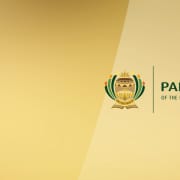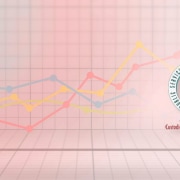|
Getting your Trinity Audio player ready...
|
 By Lorraine Louw
By Lorraine Louw
It’s easy to point to the losers when it comes to government corruption – that would be the residents and citizens. It is much more difficult to quantify the actual cash lost, with various government departments and entities, as well as political parties and NGOs, turning out their own figures.
In October 2011, when he was the head of the Special Investigating Unit (SIU), Willie Hofmeyr told parliament that between R25-billion and R30-billion of the state’s annual procurement budget alone was lost to corruption, incompetence and negligence. By 8 May 2012, it was reported that a further four cases, valued at R171-million and involving several departments within the government, were being investigated by the SIU.
International interest
But it’s not just South African groups that are looking at the sheer scale of the problem. The Washington research group, Global Financial Integrity, reported that South Africa suffered an illegal outflow of R185-billion as a result of corruption in the public and private sectors between 1994 and 2008. It estimated that in 2009, government corruption totalled R70-billion.
And according to Transparency International’s most recent global perception survey on corruption, released in December 2012, South Africa is ranked 69 out of 176 countries surveyed in 2012 – down from 64th position out of 183 countries in 2011.
The Transparency International Corruption Perceptions Index measures perceived levels of public sector corruption and ranks countries based on a score from 0 (highly corrupt) to 100 (very clean). South Africa came in at 43, which makes it one of those countries perceived to have high levels of public sector corruption. Click here to find out how much corporate fraud is costing SA.
President Zuma
In his State of the Nation address on 14 February, Zuma underlined successes in the fight against corruption, tender fraud and price fixing, particularly in the infrastructure programme. “The state has collected a substantial dossier of information on improper conduct by large construction companies. This is now the subject of formal processes of the Competition Commission and other law enforcement authorities,” he said, reiterating his commitment to root out corruption in the public and private sectors.
Since 2009, he said, he had signed 34 proclamations directing the SIU to investigate allegations of corruption, fraud or maladministration in various government departments and state entities. “The Asset Forfeiture Unit seized assets valued at more than R541-million. A total of R61-million of these assets have already been forfeited to the State, which will be channelled back to fighting crime and corruption through the criminal asset recovery account.”
The capacity of the SIU, which had been compromised by a lack of funds and personnel, had increased from 70 staff members to more than 600. Criminal investigations were initiated against 203 accused persons in 67 priority cases under investigation by the end September 2012.
“Pre-trial proceedings have so far been initiated against 191 persons. A total of 66 persons under investigation are alleged to have received R5-million or more benefits through corruption while freezing orders were obtained against 46 persons … Other successes include the arrest and conviction of 107 officials working within the criminal justice system.”
Zuma also revealed that funding of R150-million from the Criminal Assets Recovery Account was approved for the work of the Anti-Corruption Task Team, which comprised the Hawks, the SIU and the National Prosecuting Authority.
Finance Minister Gordhan
A fortnight later, his finance minister, Pravin Gordhan, also flagged corruption in his budget speech, which was tabled in parliament on 27 February. He said the National Treasury was scrutinising 76 business entities with contracts worth R8.4-billion “which we believe have infringed the procurement rules, while [South African Revenue Services] is currently auditing more than 300 business entities and scrutinising another 700 entities. The value of these contracts is estimated at over R10-billion.”
So far, 216 cases had been finalised, resulting in assessments amounting to over R480-million being raised. The Financial Intelligence Centre had referred over R6.5-billion for investigation linked to corrupt activities.
Under the present system, he said, procurement transactions took place at too many localities and the contracts were short term. There was little visibility over these thousands of contracts, which had “yielded rich pickings for those who seek to exploit it”.
His solution was setting up the Chief Procurement Office in the National Treasury. “I shall soon be able to announce the name of a chief procurement officer. A project team seconded from state agencies and the private sector has identified four main streams of work, involving immediate remedial actions, improving the current system, standardising the procurement of critical items across all government and the long-term modernisation of the entire system,” Gordhan said.
Construction cartel
Regarding the “improper conduct by large construction companies” to which Zuma referred, Business Report called the collusion to rig bids and tenders for the 2010 World Cup stadium build programme “the tip of a monstrous iceberg of fraud and deceit by construction firms including many prominent JSE-listed companies”, in an article published on 26 June.
The companies, the paper reported, colluded through meetings to inflate the price of tenders and allocate contracts among themselves, adding billions to the cost of the South African National Roads Agency’s Gauteng freeway improvements, other road schemes, the stadiums and electrical and instrumentation projects. “This emerged from the Competition Commission’s probe into bid-rigging on the 300 projects valued at R47-billion, of which R28-billion related to public sector contracts and R19-billion for private sector work.”
This week the commission reported that 15 companies had agreed to penalties collectively totalling R1.46-billion for collusive tendering in contravention of the Competition Act.
Be sure to catch part two next week, where pick apart the staggering figures quoted by law firm Edward Nathan Sonnenbergs, the Institute for Security Studies and Public Service Commission.









